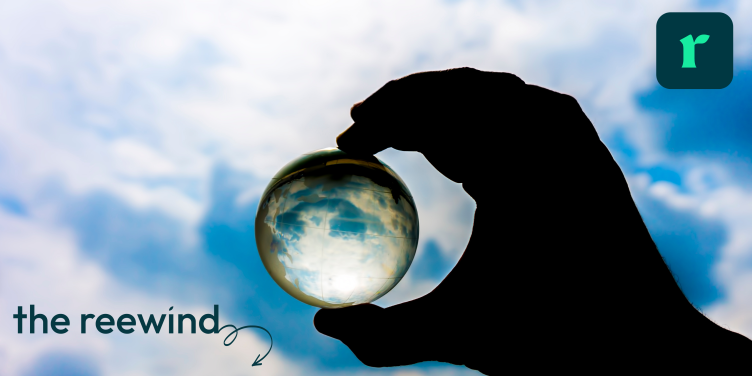
Our Top Stories
Breaching 1.5°C target: New analysis, outlined in The Guardian, has estimated that if the current level of food emissions continued, it would result in at least 0.7°C of global heating by the end of the century - extra to the 1.1°C rise already observed. This means that from food emissions alone, we would cruise past the 1.5°C limit. The big culprits seem to be the largest sources of methane, which include meat, rice, and dairy production. The study makes a point to note that if people adopted the Harvard healthy diet – which allows a single serving of red meat a week – the rise could be cut by 0.2C. However, changes in consumer behaviour must go hand-in-hand with changes in agricultural practices if we are to minimise the food industry’s climate change impact. With regenerative agriculture on the increase across the meat and dairy industry, there is hope that a more sustainable food system is fast approaching. [The Guardian]

Storing CO2 in the ocean: A new method for sucking carbon dioxide out of the air and storing it in the sea has been discovered, according to the BBC. This novel approach captures CO2 from the atmosphere up to three times more efficiently than current methods. It works by transforming the gas into bicarbonate of soda, which can be stored safely and cheaply in seawater. This development, while in its early stages, could transform the carbon removal industry. With current permanent rock storage methods expensive, and reforestation taking time and needing land, this new method could be the cheapest, most effective way to counteract our current emissions. [BBC]
The decline of native species: The Guardian reports on recent findings that half of Britain and Ireland’s native plants have declined over the past 20 years, with non-native species now more numerous in the wild. Agricultural practices and the climate crisis are the main drivers of decline in native plant species. In particular, nitrogen enrichment, habitat degradation, increased grazing pressure have led to the steep decline in many native plants, as farming has switched to more intensive, high-yield methods. [The Guardian]

CarbonCloud’s ClimateHub: Ahead of World Consumer Rights Day on the 15th March, CarbonCloud have digitally released the climate footprint of 10,000 branded food and beverage products on American grocery store shelves. The so-called ClimateHub platform now provides environmental information to millions of shoppers across the U.S, so that consumers are empowered to shop more sustainably, or at the very least, made aware of the true impact of the food they buy. [Food Tech Biz]
Brand Spotlight - Just Eat
Just Eat have begun a carbon label trial at selected restaurants in Brighton. Over the next 12 weeks, the trial aims to empower and educate consumers on the impact food choices can have on our planet. The study will provide the foundations for a wider-scale and more permanent roll-out at a later date. The restaurants involved in the study are already seeing the potential benefits, with Fat Pizza and Fat Burgers confirming plans to expand the trial to more than 40 of its stores across the UK. [Edie]
Research Corner
Ozone degradation from increased wildfires: Susan Solomon and her team have found that particles from wildfires can trigger chemical reactions that erode the protective ozone layer shielding the Earth from the sun's damaging ultraviolet radiation. With climate change leading to an increase in global average temperatures, wildfires are becoming increasingly common. It seems there is now another undesirable consequence in the race against climate change, as we now must better control the frequency of wildfires to protect the ozone layer. [Nature]
Stat Attack
“A business’ environmental impact has become a crucial factor in the consumer’s purchasing decisions, with 85% of global consumers reportedly willing to pay more for sustainable alternatives.”
Source: Sustainability Magazine
The Big Picture

About Reewild
The food and agriculture industry is at the heart of the climate crisis, generating around a third of man-made greenhouse emissions. And while the challenge of reducing its impact may seem beyond our grasp, it is one that we all have the power to tackle.
We believe that the solution lies in climate transparency. That’s why we’re equipping businesses with the means to evaluate and communicate the emissions of their products. This, in turn, means consumers are armed with credible, independent information, which can be used to make more sustainable choices.
We know that many people want to take climate action but lack the necessary tools and information to do so. We're confident that, armed with the right knowledge, everyone can and will do their bit to build a greener, more sustainable food system.
Join the Reewild app waiting list
https://reewild.com/coming_soon/
Follow us on social media
https://www.instagram.com/reewild.earth/
https://www.linkedin.com/company/reewild/


.png)


